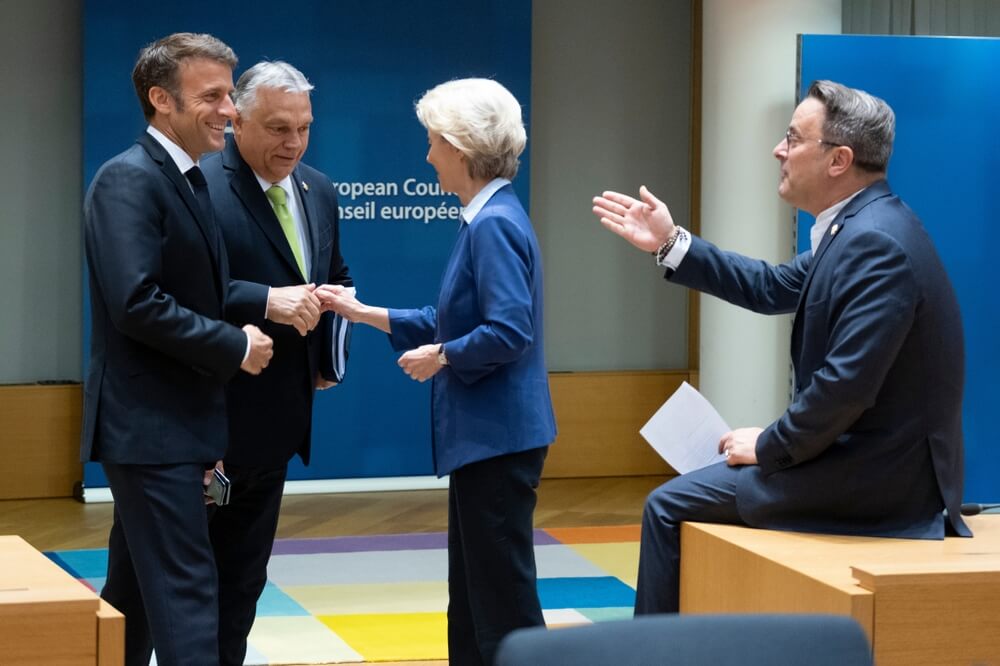The largest global manufacturer of electric vehicle batteries, China's CATL, has started to recruit employees for its new factory in Debrecen, Hungary's second-largest city, in February.
The new factory, with the largest production capacity in Europe (100 GWh), will need about 9,000 workers. They will start working next year as part of the significant Chinese investment of €7.34 billion.
Later in 2025, production will begin in the southern Hungarian city of Szeged at the new factory of BYD, China's largest EV manufacturer. This is BYD's first European factory, with full production expected in 3 to 4 years.
The local population is delighted with the arrival of 2 Chinese high-tech giants in their cities, as it will improve their infrastructure and create thousands of new jobs.
The government of Eurosceptic Viktor Orbán, which stimulated the arrival of Chinese investors with significant concessions, is also happy. Budapest will pay around €125 million for arranging the infrastructure for the future BYD factory in the south.
Chinese policemen in Hungary
However, the arrival of 2 Chinese EV-giants in Hungary does not end only with economic parameters, which are impressive enough.
They are followed by the recent signing of an agreement between the governments of Hungary and China on public security issues.
Neither side has announced the agreement details, except that it will refer to law enforcement and security cooperation, including “joint patrols”.
China is interested in protecting its large and significant investments using mechanisms of its internal security measures
Hungary is the first EU and NATO member to have such a sensitive agreement with China. According to some similar experiences from other countries where China already has this kind of cooperation, it will entail the unquestionable influence of Beijing on the security issues of partner countries, at least at the level of public security.
China is interested in protecting its large and significant investments using mechanisms of its internal security measures. The agreement with Hungary is a form of security precaution that Beijing enforces over its large business operations.
Agreement at the time of economic war
By doing this, Budapest set not only a precedent within the EU and NATO but also an opening towards the repressive Chinese security system, which shows frightening proportions at home.
Even though it should refer to Chinese citizens who will work as part of new business investments, it is difficult not to talk about the risk Hungarian citizens will be exposed to in such a situation.
The Hungarian-Chinese security agreement comes at a time when the EU is adopting severe measures, including an investigation into the operations of the Chinese largest manufacturer, BYD.
Chinese EV manufacturers, including BYD, invaded the European market in the past year
Chinese EV manufacturers, including BYD, invaded the European market in the past year, often surpassing domestic manufacturers in sales.
The EU rightly believes this is a state-supported operation through large subsidies to Chinese producers exporting to Europe.
Hungary contributes to this wave that threatens European manufacturers, making it long-lasting by concluding political-security agreements with Beijing to protect Chinese business.
Penetration of security influence
PM Orbán is aware that the new agreement with China goes beyond the framework of permissible economic cooperation with China burdened by a joint European effort to curb its aggressiveness.
The security agreement is a step further than that and confirms the old anxiety that Beijing will start to turn that influence into security and even political influence after a wave of "purely" economic penetration into Europe.
The government in Budapest is one of the most open in the EU to such strategies coming from Beijing. Hungary is the champion of cooperation with China among Central and Eastern European countries, whose former cooperation bloc on the Belt and Road project has decreased with the withdrawal of one European country at a time.
Recently, Italy, as the only member of the G7 that had an agreement to participate in BRI projects, withdrew from the arrangement because it did not benefit from it. Georgia Meloni's government thereby closed the space for the penetration of Chinese political-security influence, the same space that Orbán is now opening.
PM Orbán wants to maintain this status of Hungary. His move last week regarding the security agreement with Beijing comes at a time when he has somewhat pacified his conflict with the EU on blocking financial support to Ukraine.
 As a politician who regards negotiating as the primary diplomatic modus operandi for dealing with EU partners, Orbán gets fresh leverage with the agreement with China
As a politician who regards negotiating as the primary diplomatic modus operandi for dealing with EU partners, Orbán gets fresh leverage with the agreement with China
As a politician who regards negotiating as the primary diplomatic modus operandi for dealing with EU partners, Orbán gets fresh leverage with the agreement with China.
The Europeans will criticise him for enabling Beijing to do something no one else in the EU does. But Orbán will probably wait for the moment when, in exchange for some concessions from the Union (usually financial), he will offer his tightening of relations with Beijing as a bargaining chip.
Last December, his government backed down regarding the financial aid to Ukraine. At the beginning of this week, as the final NATO member, it approved the entry of Sweden into the Alliance.
These were, for Orbán, 2 significant levers of influence within the EU and NATO, and they have now been used.
There is no doubt that a new conflict situation will soon arise between Budapest and Brussels, where Hungary's concession could be linked to the security agreement with China.
Until then, Hungary will remain open to Beijing's non-transparent security influence in the middle of the EU and NATO, supported by billions of euros of Chinese business, which is already disrupting relations in the large European market.